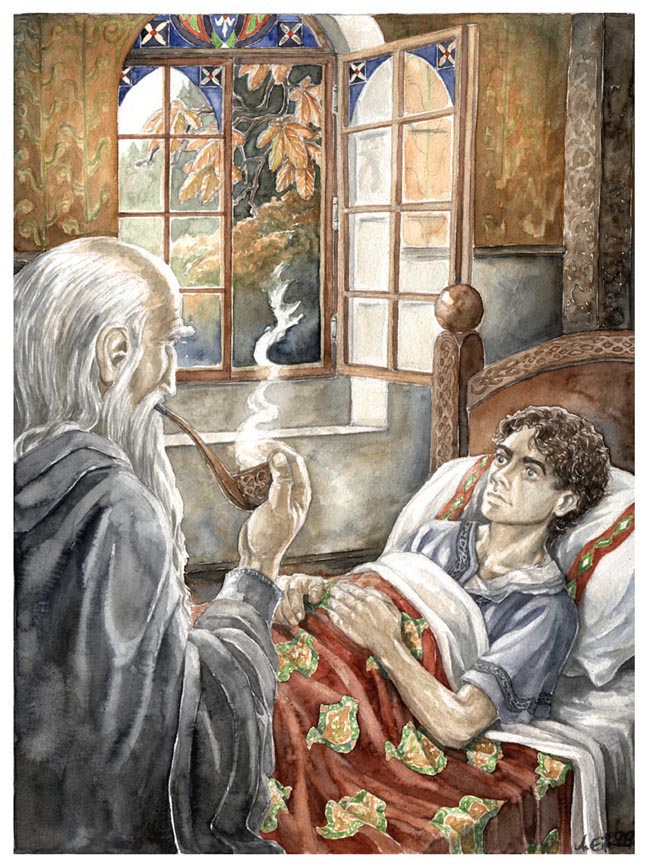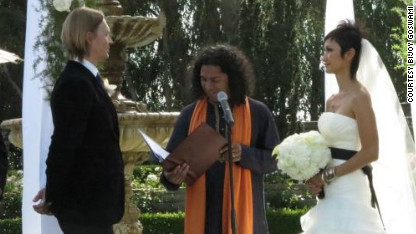I have an assignment for you. Every week ask one person one question: "How long have you been attending?"
That's your "I-can-do-that" assignment:
Every week.
One person.
"How long have you been attending?"
Isn't that so much better than asking, "Are you a visitor?" People tell me that since we've had so many new people get active at Hillcrest, they don't know who the members are and who the visitors are. They worry that they might annoy an unfamiliar member if they ask, "Are you a visitor?"
So don't ask that question! Ask my question. Find one person to ask my question every single week: "How long have you been attending?"
Members as well as visitors can answer that question. Besides, why should only visitors be greeted? Shouldn't we be getting to know members of our Hillcrest Family as well as those investigating our church?
Ask my question and see how easily it leads you into a good conversation.
If they're a member, get their name, or find our their line of work, or discover that they live in your neighborhood. The resulting conversation will give you another point of connection with your Hillcrest Family.
If they're visiting, you get a chance to take the next step with them. For example, tell them you'd like to introduce them to me after the service. Or ask them if they've attended our small-group ministry and, if they haven't, invite them to your group. If they're not in your age range, walk with them to the coffee fellowship in the gym where they can meet other small-group leaders. You can ask them how they found Hillcrest (90 percent of the time, the answer will be, "a web search"). You can encourage them to come back.
Understand, now. This isn't just about being "friendly." Being nice is a good goal, of course. But my little "I-Can-Do-That" action is actually an extension of our church's purpose.
Our purpose is to be a place where people of every generation can find and follow Jesus together. That purpose is lived out in the "big" ways like programming and music selection and sermon topics. But that purpose is also lived out in the "small" ways like making every person feel wanted and welcomed and helped.
Every person. Member. Visitor.
Lisa Earle McLeod reinforces why it's is so important to have every member of the organization practice an "I-Can-Do-That" action like this. In a Fast Company article, she wrote about her experience at a college campus:
I have a college-age daughter. My family and I were moving her into Boston University (BU) over Labor Day weekend. The four of us, mom, dad, college daughter and her younger sister, were standing on the street, looking befuddled at the campus map. At that moment, a friendly and official-looking gentleman approached us, asking, “Can I help you find something?”
He introduced himself as the dean of students. He asked where we were from, told us he was delighted to have us on campus, and pointed us in the right direction.
Keep in mind that this is a major university in the middle of a huge city with 4,500 freshmen moving in on the same day. Yet the dean himself personally approached us. And here’s the kicker: it’s not just because he’s a friendly extrovert. It’s their official campus policy.
Any staff member who sees someone looking at one of the big maps is expected to approach them and offer help. One staff member joked, “It’s a fireable offense to walk by people at the map and not offer to help.”
Notice that the simple policy isn't just about being friendly. It's a practical, visible extension of the school's official purpose, which is to "enhance the quality, character, and perspectives of our students." The dean that helped McLeod and her family told her, "We have this incredible privilege: we get to engage these young people from all over the world in thinking about their hopes and their dreams. If we can guide them a little bit, that’s invaluable; that’s our purpose."
Everyone at the school is expected to practice this. Employees who stop and proactively offer help are not interrupting their job: It is their job. "If I see that you walked past them because you have other things on your mind," the dean says he tells his staff, "we need to have a conversation and think about whether or not you should still work here.”
So, the college doesn't just enlist official "greeters" wearing big buttons with the phrase, "Can I Help You?" who then wait for someone to approach them. No, but the entire organization is expected step up to a person who looks lost and make an offer to help.
The dean describes the impact it has on staff members: “They’re a lot more present. They notice what happens around them a lot more [and] are more actively observant when they are out walking to get from one place to the next. They started to pick up pieces of paper. They have to be more present in their environment.”
Like that university's practice, everyone at Hillcrest has an "I-Can-Do-That" assignment. Sunday School teachers. Senior adults. Newlyweds. Orchestra instrumentalists. Kitchen servers. Ushers. Committee chairmen. Staff members. Whoever we are in the organization, we can all accomplish this task:
Every week
ask one person
"How long have you been attending?"
Are you doing your part to make sure Hillcrest is a place for every generation to find and follow Jesus together?
__________________________________________
Subscribe to "LeaderLines" and
it will arrive in your inbox each Wednesday
hillcrestaustin.org/newsletters





